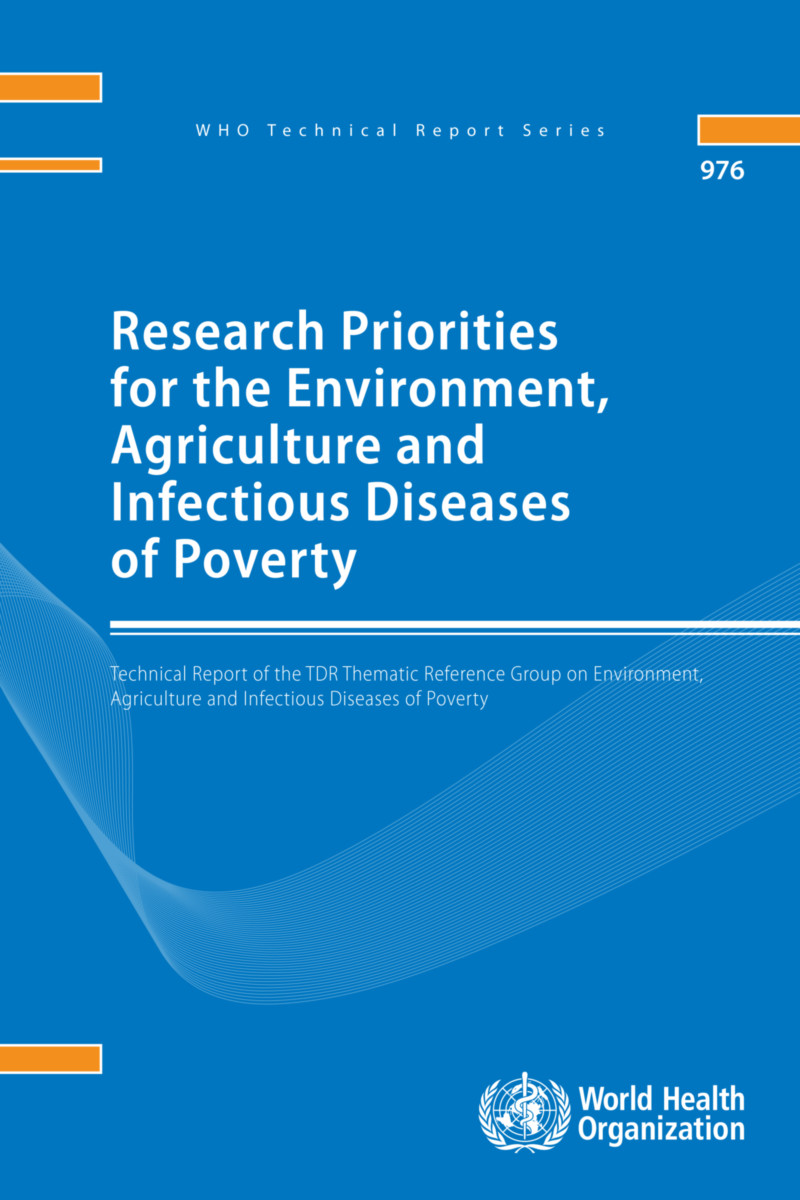Research Priorities for the Environment, Agriculture and Infectious Diseases of Poverty
Technical report of the TDR Thematic Reference Group on Environment, Agriculture and Infectious Diseases of Poverty
- Publisher
World Health Organization - Published
24th June 2013 - ISBN 9789241209762
- Language English
- Pages 135 pp.
- Size 6.25" x 9.5"
The Thematic Reference Group on Environment, Agriculture and Infectious Diseases of Poverty (TRG 4) addresses the nature of the intersections and interactions between environment, agriculture and infectious diseases of poverty in order to identify research priorities for improved disease control.
This report reviews the connections between environmental change, modern agricultural practices and the occurrence of infectious diseases—especially those of poverty—and proposes a methodology that can be used to prioritize research on such diseases. Although there is some comprehension of the underlying and growing systemic influence of today s large-scale social and environmental changes on some infectious diseases, the significance and potential future impacts of these changes are poorly understood. Nevertheless, such changes now constitute a significant influence on the working of the Earth’s systems that will have increasing consequences for patterns of occurrence of infectious diseases. Many of these changes are illustrated in this report.
A common theme of this report is bidirectional causation, effectively "trapping" complex, linked eco-social systems in stable states that are resistant to intervention. For example, poverty is associated with ill health, low education and often with poor diets, either because of under-nutrition (and diarrhoea) or intakes that have excessive calories but insufficient micronutrients. In either case, poverty impairs health; and ill health impairs the escape from poverty. Another example is provided by a recent abundant agricultural harvest in India that has far exceeded storage capacity. A substantial fraction of this harvest will be wasted due to inadequate storage. Some grain that is badly stored will be contaminated by aflatoxins and other fungi, which increases the risk of cancer. This report presents the case for a more integrated approach across sectors, research disciplines and diseases, taking greater account of the increasingly widespread and systemic influences on disease emergence and spread.
"The technical report provides a fascinating, easy-to-read overview of infectious diseases, their origin and spread, and the complex, often unintended effects on public health that result from human interaction with the environment. The report is on-target in its call for a broad, systemic multi-disciplinary approach to research into the infectious diseases of poverty...The report is highly recommended for public health officials, environmental and agricultural scientists, medical researchers, and sociologists — in fact, anyone who is seeking a better understanding of the complex interactions of environment, agriculture, and infectious diseases."
Michael Bittner, CPEA, Senior Partner - , Environmental Resources Management
World Health Organization
World Health Organization is a Specialized Agency of the United Nations, charged to act as the world's directing and coordinating authority on questions of human health. It is responsible for providing leadership on global health matters, shaping the health research agenda, setting norms and standards, articulating evidence-based policy options, providing technical support to countries, and monitoring and assessing health trends.


